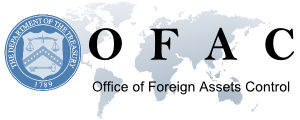OFAC Kingpin Convicted for Drug Trafficking by a D.C. Jury
Last week Aurelio Cano Flores was convicted by a jury in Washington, D.C. for his involvement in the importation into the United States of over five (5) kilograms of cocaine and over 1,000 kilograms of marijuana. Cano Flores, a high ranking member of Mexico’s Gulf Cartel, is also a designated Foreign Narcotics Trafficking Kingpin (“Kingpin”) appearing on the List of Specially Designated Nationals and Blocked Persons (SDN List) administered by the United States Department of the Treasury’s Office of Foreign Assets Control (OFAC). Cano Flores was represented by court appointed counsel which means that his attorney will be paid by the court for the representation.
Once someone is designated as a Kingpin and placed upon OFAC’s SDN List, any assets they have under U.S. jurisdiction are to be blocked and U.S. persons are prohibited from engaging in most transactions with them, including the provision of services. The provision of many legal services, including those related to representation of a named defendant in a U.S. domestic legal proceeding, however, legal and is what the prosecution and trial of Cano Flores would be. The catch is that receipt of payment for provision of those legal services must be specifically licensed by OFAC. In other words, as a lawyer you cannot get paid to represent an OFAC designated Kingpin, or as they call it a Specially Designated Narcotics Trafficking Kingpin (SDNTK), until you have received license authorization from OFAC. Failure to do so would lead to a blocking of the funds, and a violation of the Foreign Narcotics Trafficking Kingpin Act (Kingpin Act) by the party receiving the funds.
I couldn’t find anything on PACER concerning whether or not court appointed counsel or the the U.S. District Court had already received license authorization from OFAC or not. The Kingpin Act regulations do not contain any exemptions or general licenses for the payment of legal fees for court appointed counsel, and other agencies and departments of the United States Government are not exempted from OFAC’s licensing requirements as seen in other cases where U.S. Government agencies have actually had to obtain OFAC licenses prior to engaging in certain transactions. Hopefully, appointed counsel is all squared away with their authorization already. If not, they could be waiting sometime before their Criminal Justice Act funds can come to them legally. I imagine that such a wait would be even more frustrating after having taken a defendant to trial.
The author of this blog is Erich Ferrari, an attorney specializing in OFAC matters. If you have any questions please contact him at 202-280-6370 or ferrari@ferrariassociatespc.com.



